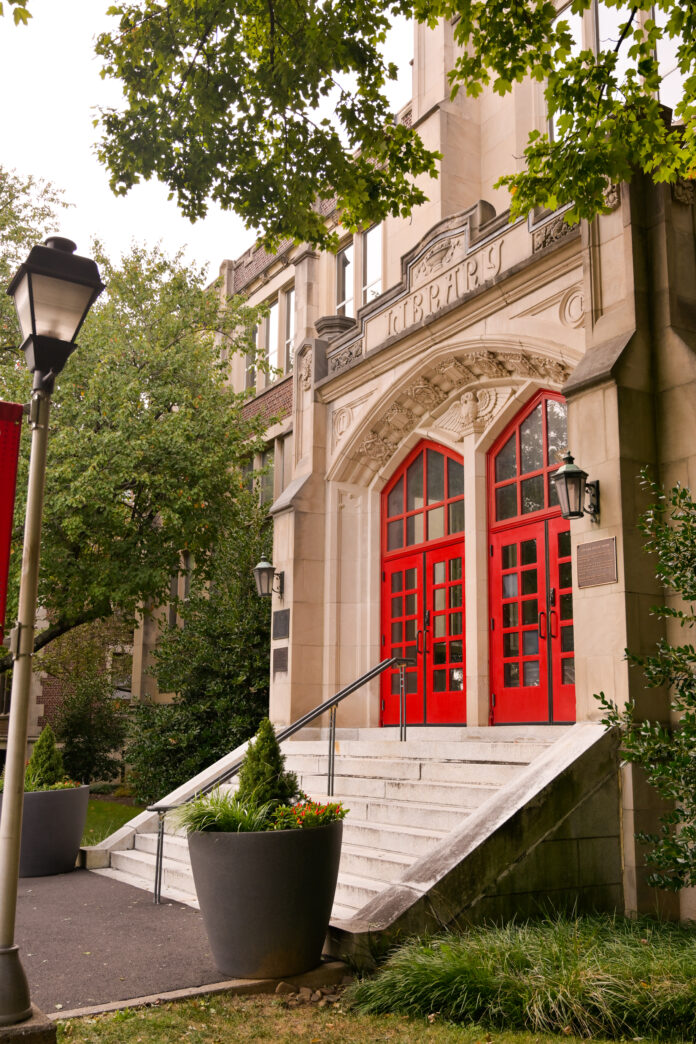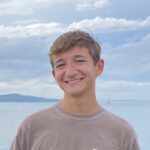The first faculty meeting of the fall semester was held this past Friday, Sept. 13. The meeting featured several new faculty member introductions and demographics for the new class of 2028. Upcoming changes to course scheduling were also discussed with an emphasis on student flexibility in the near future. Following recent federal Title IX changes, the College will also implement Title IX workshops to educate the campus community.
The spring 2024 semester saw the departure of numerous tenured and visiting professors from the College. This was a trend seen following the COVID-19 pandemic with a rise in career changes nationwide. Fortunately, 16 new faculty members were hired to ease department struggles and increase the number of course offerings.
The theatre and dance department welcomed Leslie Hill, Ph.D., as department chair and professor of theatre, Lisa Busfield as visiting lecturer in modern dance and ballet and Noel Price-Bracey as assistant professor of dance. Following with the music department, Victoria Pitre, Ph.D., was welcomed as assistant professor of music in choral conducting. Several other departments also have new additions to their faculty, including Noam Cohen, Ph.D., as visiting assistant professor in Hebrew and Jewish studies, Anh Sy Huy Le, Ph.D., as assistant professor of history and modern Chinese, Michael Opal, Ph.D., as visiting assistant professor of English and Youngsun Jang, Ph.D., as assistant professor of computer science.
“We are not doing this for faculty workload reasons, we are doing this primarily for student flexibility.”
The social science scene at ‘Berg welcomed four new faculty members. Marion Cassard, Ph.D., is the new visiting assistant professor of sociology, John Favini, Ph.D., as visiting assistant professor of anthropology and Gene Kelly, Ph.D., as visiting professor of psychology. After three years as a visiting assistant professor of political science at the College, Lindsay Burt, Ph.D., is now the managing director of the Institute of Public Opinion in addition to her role as assistant professor of political science.
Two faculty made their return to the College, with Edward Lenzo, Ph.D., returning as visiting assistant professor of philosophy and Jonathan Gooch, Ph.D., as visiting assistant professor of chemistry. Two Muhlenberg alumni also made their return to the College but this time as faculty members. Greta Bergstresser ‘04 was named the new assistant professor of photography and Kecia Kathleen Sturdivant ‘03 as the director of innovation and entrepreneurship.
President Kathleen Harring, Ph.D., followed the faculty introductions with new statistics for the class of 2028. “First-year enrollment is 466 students and our goal was 459… and 466 is higher than 459,” Harring jokes. “This is in part due to bold creative strategies from you [the faculty] as well as the financial aid and admissions offices. We were looking for between 20-30 transfer students and we have 18…and one of our challenges with transfer students is the ease with which we are able to give guidance to admissions.”
She then touches on the recent closure of the University of the Arts located in Philadelphia. “We immediately jumped on that with social media and other types of outreach and I don’t think we did get anyone from the University of the Arts. There is a challenge, particularly with transfer students in that situation who are juniors and only looking to transfer for a year.”
Chair of the Academic Policy Committee (APC) Jeremy Teissere, Ph.D. was next to share updates. He began with a description of the committee and its role in “making recommendations for our academic programs as well as the faculty governance structure.” He followed this statement with three small announcements that have been a part of long-standing work being done by the committee.
“We have been spending quite a bit of time benchmarking and working with data to try to build new models of weekly time patterns. We are doing this to…enhance student flexibility and prevent conflicts among classes that are scheduled and to try to come up with a list of principles by which we use schedules that are totally transparent for everyone. We are not doing this for faculty workload reasons, we are doing this primarily for student flexibility. We looked carefully at course patterns and met with athletics, student life and many different departments. We met with interest in facilities and the availability of particular classrooms that can seat a certain number of students, specifically with theater and dance, that have these challenges.”
“First-year enrollment is 466 students and our goal was 459… and 466 is higher than 459,” Harring jokes. “This is in part due to bold creative strategies from you [the faculty] as well as the financial aid and admissions offices.”
“Making my schedule for this semester was so hard because I knew I had to take BIO160 and general chemistry and the times that general chemistry had lectures conflicted with a lot of other classes I wanted to take,” shared an anonymous student. “Those two classes solidified the time I had free so I had to go searching for classes that I don’t necessarily need but just to find courses that could fit into my schedule. So I had to keep switching around classes to figure out how I could make it work.”
Another student shared a different sentiment on the topic of scheduling. “I had to swap one course for this semester out but otherwise I haven’t had many problems with scheduling my classes,” shared Joseph Tsocanos ‘27.
Five draft models were made that reflected these scheduling concerns and included more common hour times during the day that could be used to hold Student Government Association (SGA) meetings or general campus programming events. Athletics was also heavily considered when creating the drafts to prevent conflicts with practice and game times.
The College’s new Pathways for Discovery was the next topic of discussion. Lack of clarity on how courses will transition into the new curriculum has left both students and staff confused, as noted by Teissere. He continued that a report will soon be released to clear up the air about these transitions.
New Title IX workshops are also in the works for faculty and students following recent federal changes. The workshops aim to educate the Muhlenberg community about the alterations to the policy and how they will affect future cases. Faculty-only workshops will also be held to discuss potential scenarios with Title IX and, in a similar light, Title VI workshops will be introduced to help navigate bias reporting cases.
This faculty meeting generally set a positive tone for the beginning of the fall 2024 semester. With several new faculty members joining the campus community and upcoming changes to course scheduling flexibility, the academic future of the College is looking especially bright.
Matthew '25 is a double major in Biology and French & Francophone Studies. When he's not in class or writing for the Weekly, he is usually swimming, playing volleyball, listening to brat or rewatching all the Hunger Games movies.























